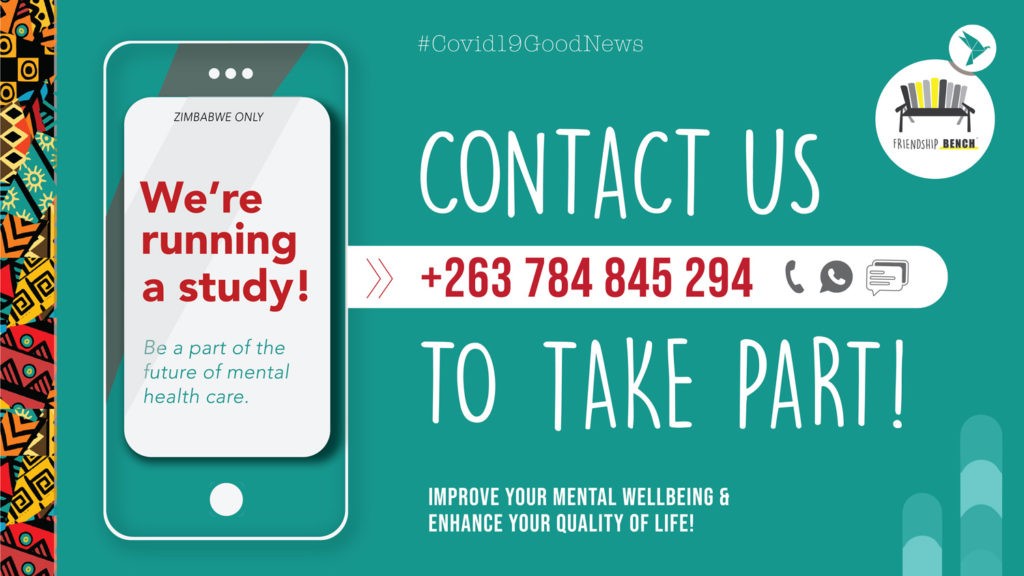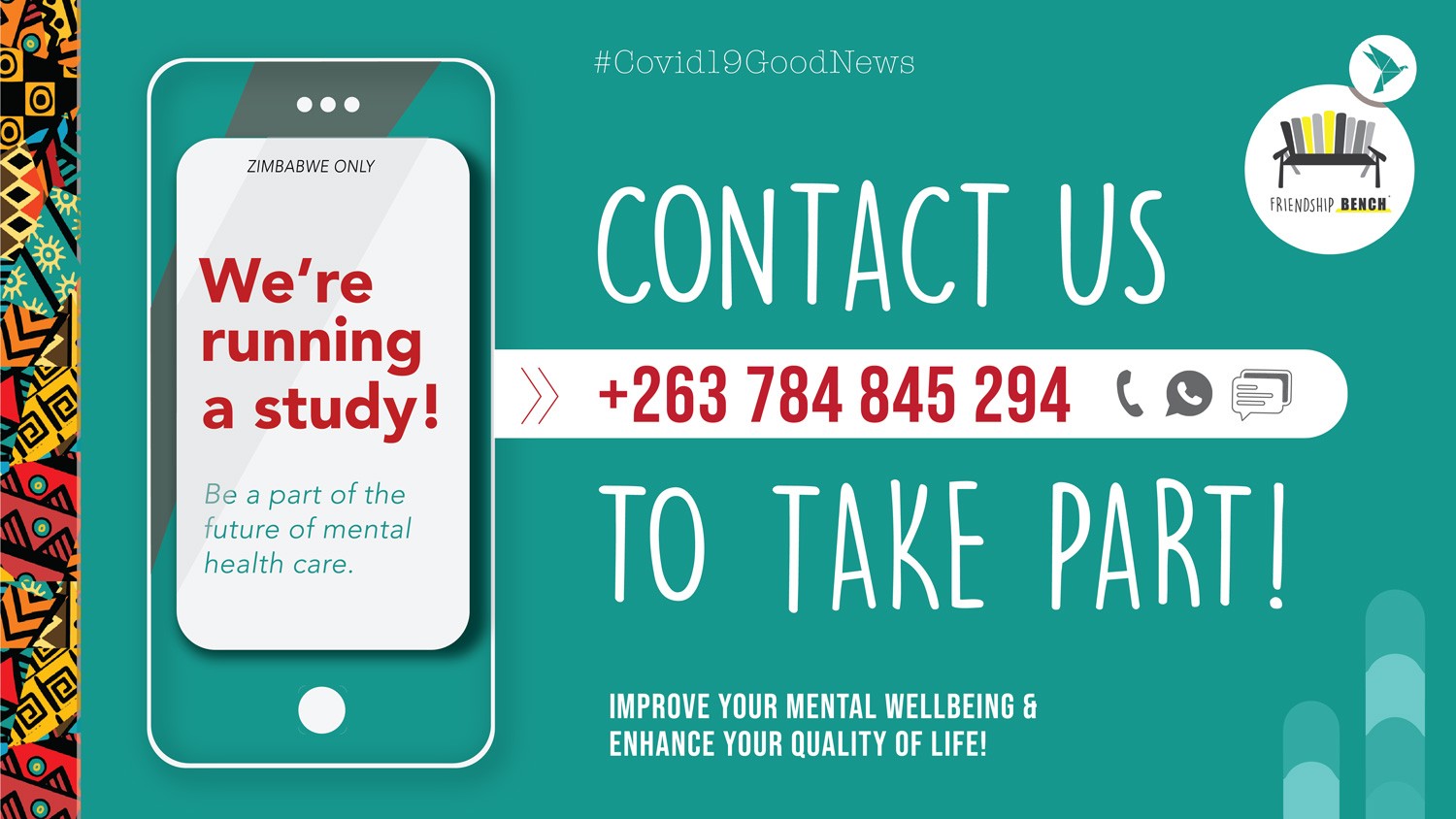
The COVID-19 pandemic has provoked the already high levels of common mental health disorders in Zimbabwe to an alarming level. Depression, anxiety, post-traumatic stress disorders, substance use disorders, and suicides are likely to increase. We already know that 1 in 4 Zimbabweans present with some symptoms of depression at any given time and globally that every 40 seconds someone takes their own life by suicide (WHO). We can only imagine what these figures look like in the coming months against the background of COVID-19. With the absence of social safety nets, poverty, food insecurity, loss of jobs and general uncertainty about the future, Zimbabweans are facing an epidemic within the pandemic.
Lockdown measures have resulted in a loss of income for people in the informal sector (and some in the formal sector) who were previously managing to live hand to mouth. School closure has meant loss of routine and stability for the young. Zimbabwe’s youth, defined as total population under the age of 35 by UNFPA is approximately 67.7% of the total population. Stay at home measures, especially in high density suburbs, has led to increased reports of intimate partner violence and domestic abuse.
Access to mental healthcare is suboptimal at the best of times. In light of the corona virus pandemic access to evidence-based care has become near non-existent.
To bridge the mental health treatment gap, the Friendship Bench is exploring the use of a digital mental health intervention. The intervention is currently in its trial phase as we gather the evidence needed for scale-up; our interventions are grounded in evidence-based. The intervention is delivered via a chat-based app that can be downloaded on Google Play or accessed via a web browser for desktop and iOS users. Once a client has registered, they select the Friendship Bench counsellor they would like to talk with, based on gender, star rating, language spoken, and time slot availability.
The team who deliver the intervention have been trained by a group Friendship Bench clinicians in basic Cognitive Behavioural Therapy with an emphasis on Problem Solving Therapy and activity scheduling. Each session lasts up to 90 minutes and follows a 3-step approach. Firstly, identifying and defining the problem; secondly, problem exploration and brainstorming around one specific issue that is feasible to address; and lastly, developing a SMART action plan to go and try. Once the session is done, a client can book for a follow-up session where the Friendship Bench coach can review with the client how it went, if there were barriers or if there is another problem they can start working on together.
Should someone not want to or be unable to download the app we also offer them the same intervention over WhatsApp, this means the person can then choose between a voice call or message session and the Friendship Bench peer counsellor will call them for the session to ensure there are no airtime or data issues.
All our sessions are free of charge as well as confidential, and clients can choose to remain anonymous.
Guided by our values of empathy and connection, anchored in research, the Friendship Bench mission is to create safe spaces and a sense of belonging in communities to enhance people’s mental wellbeing and improve quality of life.
